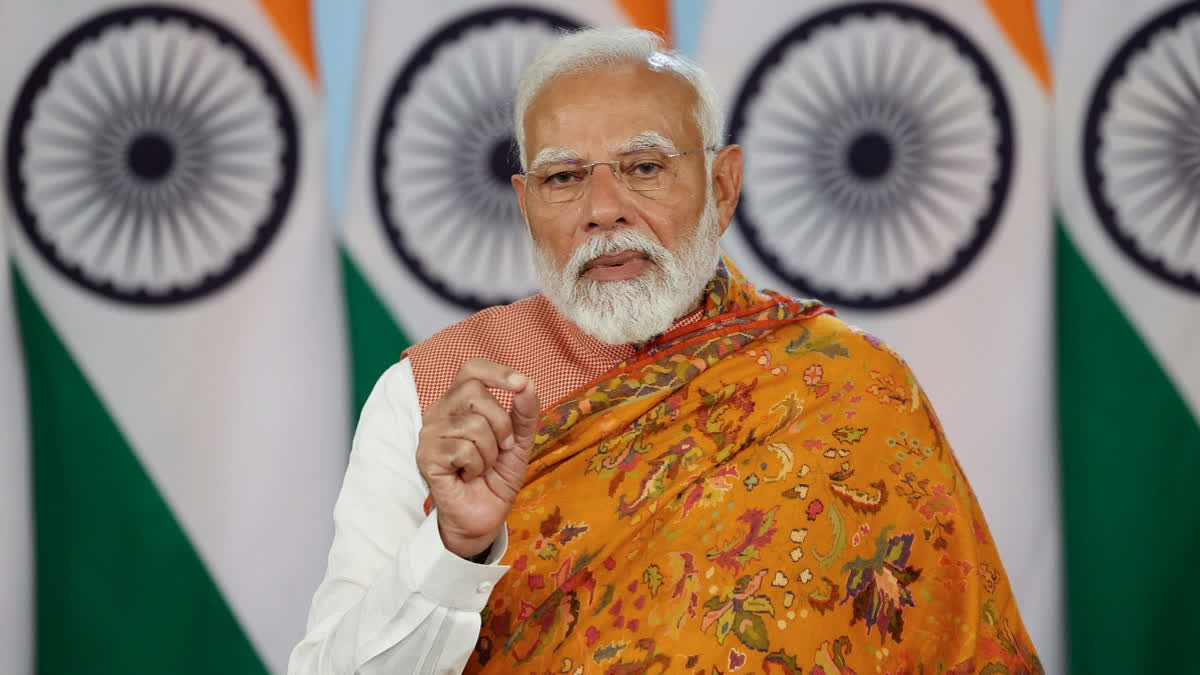New Delhi: Prime Minister Narendra Modi said on Friday that many of the world's conflicts are an outcome of taking extreme positions instead of a balanced approach, asserting that Buddha's teachings of following the middle path and avoiding extremes offer solutions to numerous global challenges.
In a video address to the fourth edition of Samvad, a global Hindu-Buddhist initiative for conflict avoidance, organised in Thailand, Modi said the shared traditions of Asia rooted in the principles of Dhamma provide answers to the environmental crisis plaguing the world.
Hinduism, Buddhism, Shintoism, and other Asian traditions teach people to live in harmony with nature, he said, adding they do not see themselves as separate from nature but as a part of it.
According to a statement, Modi highlighted the concept of trusteeship, as advocated by Mahatma Gandhi, and emphasised that when using natural resources for progress, one must also consider our responsibility to future generations. This approach ensures that resources are used for growth, not greed, he added.
Noting that this edition of Samvad is hosting a religious roundtable, bringing together diverse religious leaders, He expressed confidence that valuable insights will emerge from this platform, shaping a more harmonious world.
Praising the host country Thailand for its rich culture, history, and heritage, Modi stressed that it stands as a beautiful example of the shared philosophical and spiritual traditions of Asia.
Underlining the deep cultural ties shared by India and Thailand spanning over two thousand years, he said Ramayana and Ramakien connect the two nations and that their shared reverence for Lord Buddha unites them.
Citing Buddha, he said the principle of moderation remains relevant today, offering guidance in addressing global challenges. He mentioned the vibrant partnership across multiple sectors between the two countries, and said India's 'Act East' policy and Thailand's 'Act West' policy complement each other.
He said another cause of conflict is perceiving others as fundamentally different, adding that differences lead to distance, and distance can turn into discord. To counter this, he cited a verse from the Dhammapada, which states that everyone fears pain and death.
The prime minister noted that he hailed from Gujarat's Vadnagar and represented Varanasi in Parliament, and said it is a beautiful coincidence that places associated with Lord Buddha have shaped his journey. He said, "Our reverence for Bhagwan Buddha is reflected in the policies of the Indian government."
India has developed tourism infrastructure to connect important Buddhist sites as part of the Buddhist Circuit, he said, while also highlighting the 'Buddha Purnima Express' special train to facilitate travel on this circuit and the inauguration of the Kushinagar International Airport to benefit pilgrims.
He also announced various development initiatives for Bodh Gaya to enhance its infrastructure and invited pilgrims, scholars, and monks from around the world to visit India.
In his speech, Modi said the Nalanda Mahavihara was one of the greatest universities in history and was destroyed centuries ago by the forces of conflict, adding that India has shown resilience by reviving it as a centre of learning and expressed confidence that Nalanda University will regain its former glory.
He highlighted the significant step taken to promote Pali, the language in which Bhagwan Buddha delivered his teachings, by declaring it a classical language to ensure the preservation of its literature.
Modi highlighted the collaboration with many nations over the past decade to promote the teachings of Lord Buddha. He commended the distinguished institutions and individuals from India, Japan, and Thailand for making the event possible.
The prime minister took the opportunity to remember the late Japanese leader Shinzo Abe, with whom he enjoyed a close personal bond, noting that the idea of Samvad emerged from their conversations in 2015.



